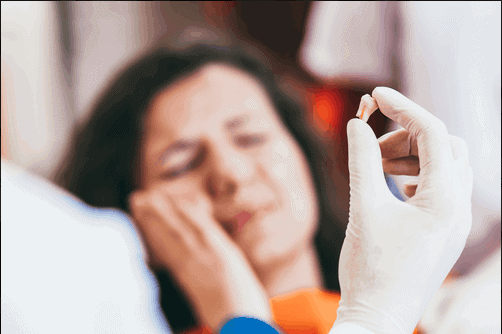The road to recovery after a dental cleaning can be a long and difficult journey, filled with pain and discomfort. But with proper care and attention, this journey can be a meaningful experience that leads to improved oral health and a healthier lifestyle.
Let us explore the various techniques and tips for managing pain after a dental cleaning and the importance of seeking professional help when needed.
Together, we can find the path to a successful recovery.
Identifying the Source of Pain After Dental Cleaning
Identifying the source of discomfort experienced after dental cleaning is important in managing pain and recovery. Many people experience sensitivity of the teeth following a dental cleaning, which is likely due to the deep cleaning process. While the discomfort can be uncomfortable, it is important to remember that dental cleanings are essential for maintaining healthy teeth and gums.
To reduce the discomfort, it is recommended to use a warm salt water rinse or a warm water rinse after the dental procedure. Additionally, counter pain relievers may be used to provide temporary pain relief. For those experiencing more significant pain, root planing may be necessary. Root planing involves smoothing the root surfaces of the teeth to reduce inflammation and provide relief.
It is important to note that regular dental visits are essential to ensure healthy teeth and gums and help prevent the need for further dental procedures. Taking the time to identify the source of discomfort after dental cleanings and implementing appropriate measures can help ensure a smoother recovery with less discomfort.
Pain Management Techniques
After identifying the source of discomfort after dental cleanings, several pain management techniques can help to reduce the discomfort and speed up the recovery process.
An important first step is to switch to a soft-bristled toothbrush, as it will be easier on the teeth and gums.
Maintaining good oral hygiene is essential in preventing gum disease and keeping teeth clean. For relief from pain, over-the-counter pain relievers or topical gels can be used as directed.
To prevent food particles from getting trapped between teeth, gentle flossing and mouth rinsing with warm salt water should be done.
It is also important to maintain good oral health by eating soft foods high in potassium nitrate. These foods include bananas, potatoes, and yogurt.
Lastly, avoiding sugary and acidic foods can also help reduce pain and discomfort.
Self-Care Tips for Recovery
Taking proper care of oneself is an essential part of the recovery process after a dental cleaning. Thus, it is important to follow certain self-care tips. These tips can help to reduce any temporary discomfort and provide temporary relief from dental pain.
Here are some key ways to care for yourself after a dental cleaning:
- Eat cold foods: Eating cold foods such as ice cream, popsicles, and smoothies can help to reduce tooth sensitivity.
- Avoid foods that could cause tartar buildup: Foods that contain sugars, starches, and other sticky substances can cause tartar buildup, which can irritate gum tissue.
- Soothe your mouth with water and honey: A mixture of warm water and honey can help to soothe and cleanse the mouth after a dental cleaning. This can also provide temporary relief from dental pain.
- Use over-the-counter pain medication: Over-the-counter pain medication can be used as directed to reduce any discomfort after a dental cleaning.
- Avoid using dental tools and procedures: Refrain from using dental tools and procedures that could further irritate the gums and cause pain.
When to Seek Professional Help
If pain persists or worsens, it is important to seek professional help. Pain signals should not be ignored, as they could be a sign of a much more serious underlying problem, such as root canal, tooth roots, root planning, oral diseases, or tooth decay. If a professional is not consulted, the problem is unlikely to get better and may even worsen.
Dental hygienists are the primary point of contact for diagnosing and treating pain after teeth cleaning. They are the individuals that can best determine whether the pain is being caused by a minor issue or something more serious. If the pain is related to a more serious issue, they can refer the patient to a dental clinic for further evaluation.
Dental clinics offer a wide range of treatments to address more serious pain signals, such as root canals, root planning, and treatment for oral diseases. In addition to professional treatments, they may also provide advice on how to avoid pain after teeth cleaning, such as avoiding acidic foods and brushing regularly.
It is important to be proactive when it comes to pain after teeth cleaning. Ignoring the pain could lead to more serious issues that may require more extensive treatment. If pain persists or worsens, it is important to seek professional help to ensure the best outcome and a speedy recovery.
Maintaining Oral Health After Dental Cleaning
Practising good oral hygiene is key to maintaining healthy teeth and gums after a dental cleaning. One should be mindful of the foods they consume, avoiding sugary and chewy foods that could cause buildup of tartar and plaque. In addition, soft foods are recommended to avoid any temporary sensitivity due to dental treatments. It is also important to make regular dentist appointments to ensure that the root surfaces and gum lines are free of any inflammation.
To keep teeth and gums healthy, it is essential to understand the importance of brushing and flossing twice daily, as well as using a mouthwash to help reduce plaque buildup. Additionally, having regular dental checkups is important in order to detect any potential problems.
Here are the top 5 tips for maintaining oral health after a dental cleaning:
- Brush and floss twice daily
- Avoid sugary and chewy foods
- Opt for softer foods when experiencing tooth sensitivity
- Make regular dentist appointments
- Use a mouthwash to reduce plaque buildup
Key Takeaway
In conclusion, recovering from dental cleaning can be a difficult process. While taking appropriate measures to manage pain, such as using over-the-counter medication and applying cold compresses, it is important to be aware of when to seek professional help.
Maintaining oral health after a dental cleaning is essential to a successful recovery; thus, taking a proactive approach to the process can help make a painful experience more bearable.
As the old adage states, “An ounce of prevention is worth a pound of cure.”
At Ashfield Family Dental, located in Ashfield, NSW, we offer comprehensive dental cleaning services to ensure proper oral hygiene and health. Our experienced team of professionals is dedicated to providing the highest quality care and making sure our patients have the best experience possible. So, if you are looking for a professional and reliable dental cleaning service, book an appointment at Ashfield Family Dental today!




